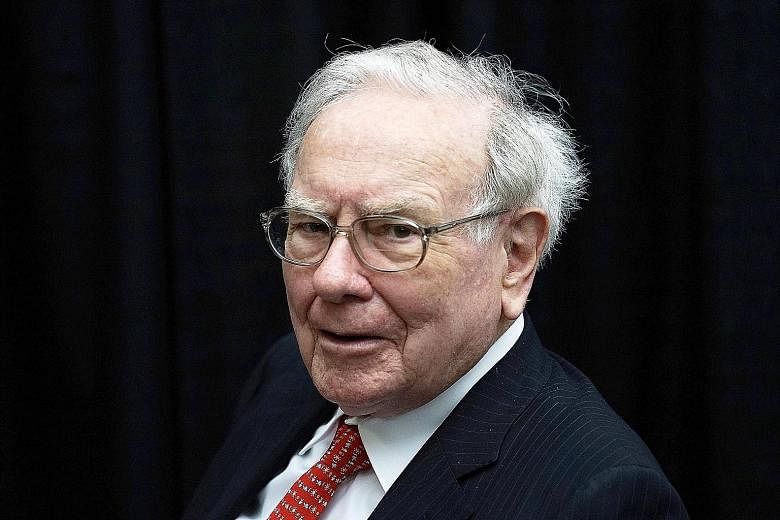Billionaire investor Warren Buffett believes the rally in markets over the last several years has made it harder to find bargains, but stocks still remain his choice over bonds.
Mr Buffett, the chairman and chief executive of Berkshire Hathaway, recently told Bloomberg Television interviewer David Westin why cash has been piling up at the firm: "It tells us stocks aren't as cheap as they've been most of the time."
Buying shares after the 2008 financial crisis, he said, was like "shooting fish in a barrel".
In a recent separate interview with US network CNBC, Mr Buffett said he continued buying stock in Apple this year even as one of his deputies was selling.
And he tamped down speculation that Kraft Heinz would pursue a takeover of Mondelez International. Berkshire is the largest shareholder in Kraft Heinz and controls the company along with buyout firm 3G Capital.
Mr Buffett, 87, built Berkshire into a conglomerate over five decades through shrewd stock picks and takeovers. The company's dozens of subsidiaries now include insurers, manufacturers, retailers and a railroad.
Its stock portfolio - which includes multibillion-dollar stakes in companies like Wells Fargo and Coca Cola - was valued at more than US$135 billion (S$182 billion) at the end of June.
Stocks "have gotten less attractive as they've gone along", Mr Buffett told Mr Westin. But "they're still very attractive compared to bonds" because interest rates are so low.
The S&P 500 is in its second- longest bull market on record, having more than tripled since March 2009 in a rally that has added almost US$19 trillion to share values. This year alone, the gauge has closed at record highs 30 times.
But even as valuations make it harder for Mr Buffett to find new investments, some of his older ones are paying off. Recently, Bank of America said Berkshire had converted its preferred stake into common shares. The transaction locked in a paper gain of more than US$11 billion on an investment that Mr Buffett made six years ago, when the bank's shares were tumbling amid probes tied to the housing meltdown.
Finding companies that Berkshire can take control of has been a bigger challenge lately. Earlier this month, his bid to buy the majority of Oncor Electric Delivery, Texas' largest power distributor, fell apart. That failed effort came six months after a Berkshire-backed deal to buy Unilever hit the skids.
The collapse of two high-profile pursuits in such a short time frame is a rarity for Mr Buffett, whose last major deal was in 2015, when Berkshire agreed to buy aerospace-parts maker Precision Castparts for more than US$35 billion. While he has made many offers that went nowhere, it is less common for such misses to play out in public.
The deal drought has bigger implications for Berkshire. The company does not pay a dividend and rarely buys back its own stock, so failing to consummate major transactions means cash piles up from its subsidiaries. At end-June, Berkshire had just shy of US$100 billion.
Mr Buffett did the interviews in New York, where he was lunching with the winner of an annual charity auction that raises money for Glide, a San Francisco non-profit. The top bidder this year, who chose to remain anonymous, paid US$2.68 million to bring as many as seven friends to lunch with the billionaire at Smith & Wollensky steakhouse.
BLOOMBERG

